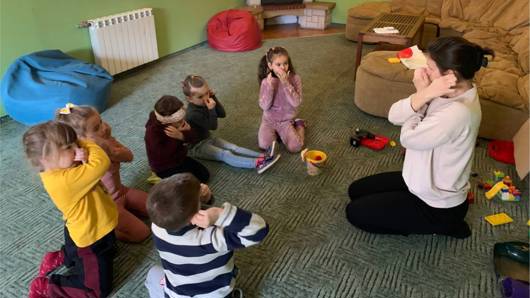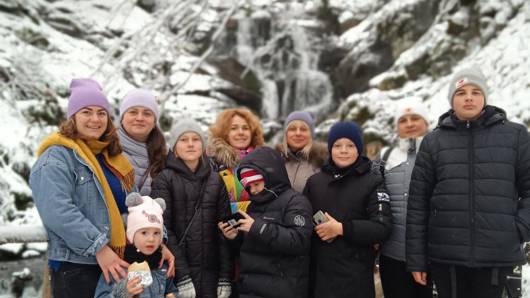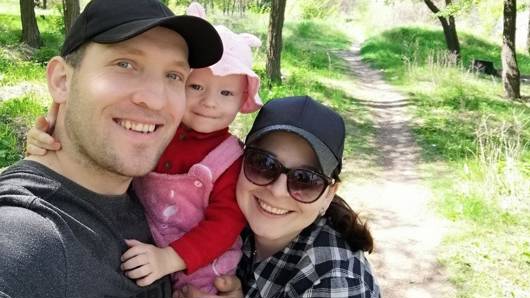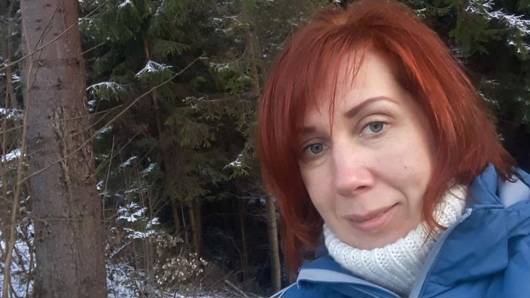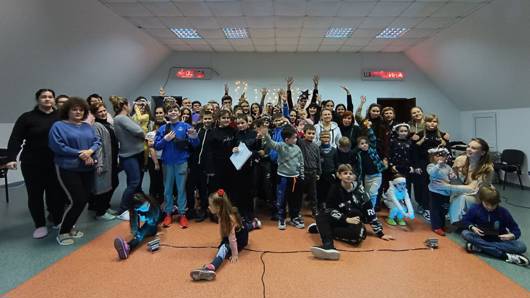Natalia Kolesnikova, her husband Andriy and two children, 10-year-old Kseniia and 14-year-old Maksym, lived in Mariupol. She worked for Metinvest Digital, an IT company, whose office was located in the plant management building of Azovstal.
When the war broke out, the family decided to wait a few days in Mariupol, as all the roads had already been blocked and it was impossible to leave the city.
The house was hit three times
At first, the Russians shelled the suburbs, and then the frontline approached Mariupol - there were already battles around the city.
"No one was letting anyone out anymore. We were like human targets on the contact line. We lived in the private sector, hiding in our small cellar for almost a month. One day we came out to heat water on the grill and feed the children. At that moment, a shell hit the house three times. The two-metre high brick fence was shattered. My husband was wounded in the hip by a large fragment. The children miraculously survived. They had just entered their room. The eldest was covered with a curtain. When I lifted it, it was pierced like a sieve, but my son survived. The younger one got under the blankets, which saved her," Natalia says.
The family was taken in by friends, and their small house with a stove became a shelter for several other families in Mariupol.
The fragment was removed from her husband's hip, but he had lost a lot of blood and needed bandages. When Natalia managed to get home to get bandages for her husband, the ceiling of the house was already on the floor. "There were snipers and tanks, and I remember their muzzles for the rest of my life. Thanks to some higher power, we stayed alive. We could hear the sound of aircraft. It was probably the worst thing for children," she recalls.
When the frontline retreated to Azovstal and the area became quieter, Natalia tried to get to the regional hospital to take medicine for her husband. "It was scary: burned 9-storey buildings, lots of crosses, because people were burying those they could get out of the rubble. Many torn bodies were lying on the ground," says the Mariupol resident.
There were many people in the regional hospital, some of them were waiting outside. The building was filled with Chechens. It was a ghastly sight near the operating room: people were located along the wall - some had no arms, some had half a head.
"We were told they could not help us - there was no dressing material. Near the hospital, I found out that there should be an evacuation, some lists were being formed," says Natalya.
At the end of March, the family decided to try to leave the city. Natalia's friends managed to find gasoline, and they were taken to the outskirts of the city, where the evacuation bus was supposed to arrive. The family took it and reached the village of Nikolsky near Mariupol. All people were registered at school, where lists were formed for Donetsk and Tahanroh.
We saw bread for the first time in Berdyansk
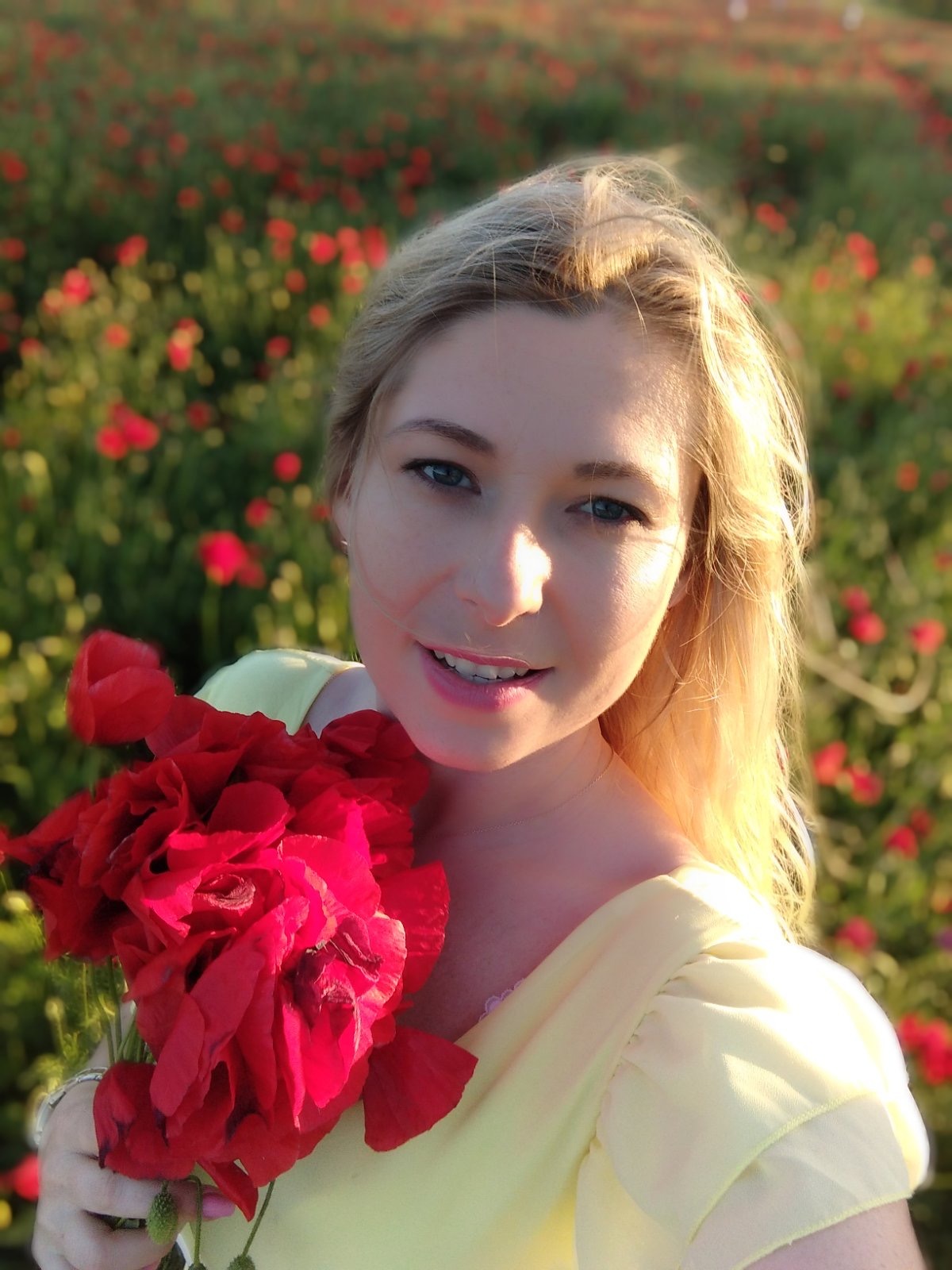
Natalya found a person who was supposed to take the family to Berdyansk for UAH 4 thousand. There was nowhere to get cash: the family paid for the money they had presented to the children for their birthdays. In Berdyansk, the first thing they did was visit the doctors - there they bandaged the man up and advised him to go on, because there were no doctors.
"In Berdyansk, we saw bread for the first time since the beginning of the war. There was no bread in Mariupol. We understood that no canned food can help when there is bread," recalls Natalya.
The woman managed to find a private driver who agreed to take the family to Zaporizhzhia. The trip was difficult. The car got into an accident - the car got stuck in a ploughed field. Just then, a Russian vehicle was driving down the road: the family waited patiently, because they could be shot for the slightest movement. When the residents of Mariupol got out of the car, they were picked up by caring people: eight people and one dachshund were in a tiny Volkswagen.
There was only one Russian checkpoint to reach the territory controlled by Ukraine. Artillery fire caught people right on the road, and there was nowhere to hide - there were fields all around. It was getting dark when the road was opened for all cars. In total darkness, a convoy of ten cars drove into a village.
"Someone from the locals was not afraid and came out to us. They heard the engines sounds. We were settled in houses for the night. It was the village of Tarasivka, near Orikhiv. If it weren't for these people, we would have stayed on that road," Natalya is grateful.
The next morning, the family passed the last Russian checkpoint and reached Orikhove controlled by Ukraine. "It will be remembered for a long time. We thought that we would get out of the car to stretch out on Ukrainian territory. But because of fear and adrenaline, we tore past Orihiv and Zaporizhzhia without stopping all the way to the Dnipro. The road from Mariupol to Dnipro took four days," recalls Natalya.
In Dnipro, Natalia's husband was given medical assistance. There was a damaged nerve in the leg that could not be restored, the man could not feel his leg below the knee. "The doctors said that we came in time to save the leg. Now he limps, but he walks," says Natalya.
In the program, I realized that a human being can cope with anything
The family stayed in Dnipro, where Natalya studied. "For the first months, we were in a state of shock, we were afraid to go outside. Children sat in corners. Before the war, they practised ballroom dancing, I understood that they should be brought into society urgently. We found a dance hall, and the children gradually began to recover," says the woman.
Natalya learned about the Unbreakable Mom program from the Masha Foundation and Metinvest's humanitarian project "Saving Lives" from the corporate newsletter. The woman with Ksenia and Maksym went to Morshyn for rehabilitation.
"At first it was unusual, and then the morning started with us running for positive issues to classes on resource therapy," says Natalya. - Psychologists have taught us many things. First, look at everything that is happening from a different angle. They explained how to switch, where to get the resource. We learned that even when something bad happens, you can control your emotions. We had a step-by-step action plan to restore the resource. For each participant, psychologists have chosen something that will help her.
We made a lot of notes, tried to work on ourselves during the day. Then we made it a habit and it became much easier. You no longer take so hard to what is happening around you.

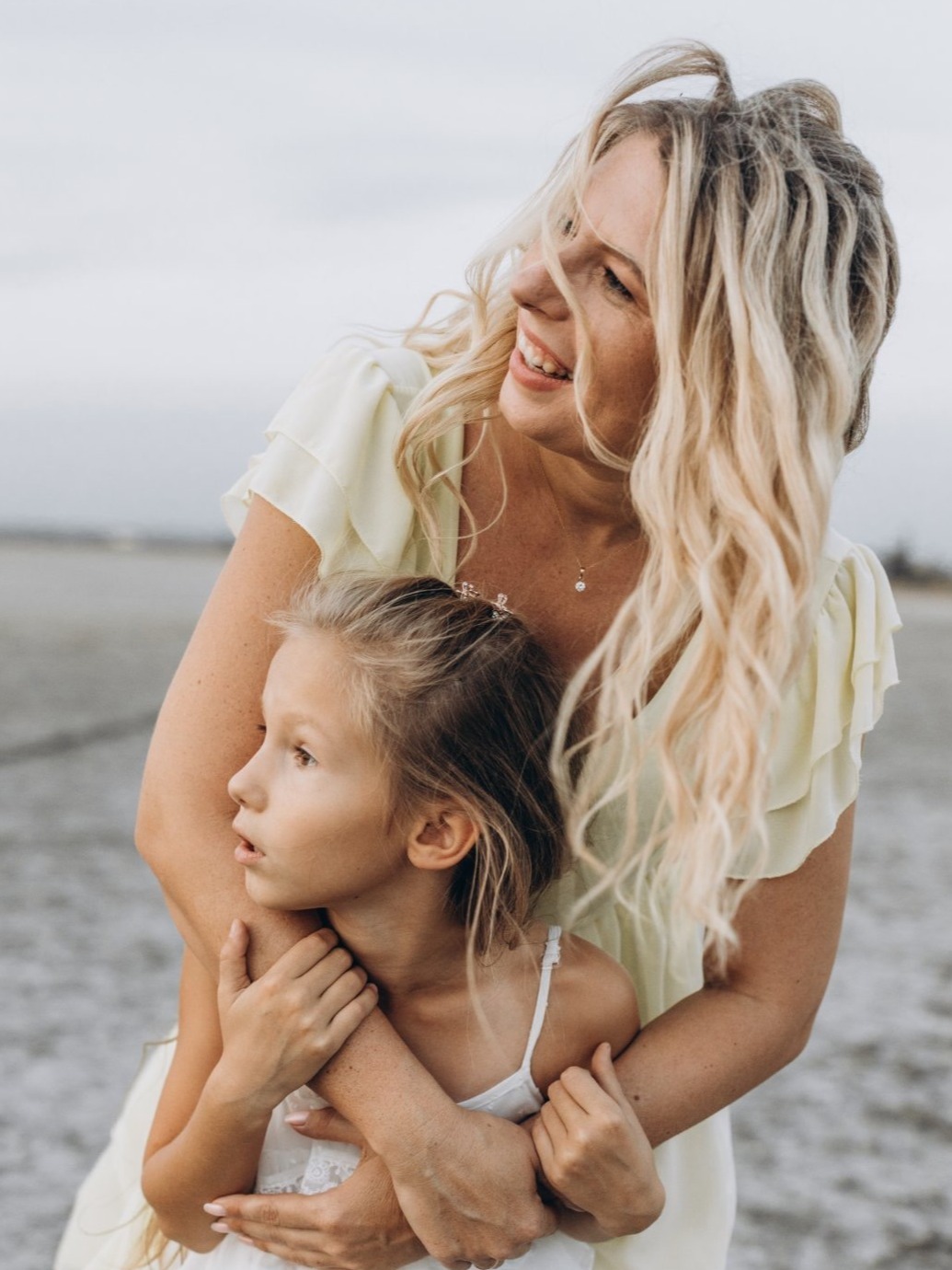
Physical therapy is a revelation for me. We are constantly under stress. My cheekbones hurt, and I didn't understand why and I didn't know how to relax them. Breathing works at one hundred percent. It takes quite a bit of time, but psychologically and physically you bring yourself to a resourceful state when you can think clearly and make decisions.
Psychologists worked very well with children. Now children study remotely, and live communication is not enough. Specialists were able to make them so free and united that all children communicated with each other - from the smallest to the oldest. Children have become completely different. The elder and the younger did not always find a common language, but now they became calmer, began to communicate more.
After classes at the art workshop, I realized that, everything is under the control of a person. The main thing is to start. It doesn't matter what it will be - drawing, creating flowers, felting from wool or something else. If a person undertakes a task or wants something, everything is possible. The art workshop proved it one hundred percent.
Individual sessions with a psychologist helped me resolve issues that had dragged on for years — family problems, relationships with my husband, childhood traumas. Many thanks to the psychologists!
"Unbreakable Mom" was one hundred percent useful for me and my children. In the second week of the program, I felt the result of all the classes and exercises — the puzzle was completed. I began to react differently to the news, my thoughts and actions changed.
At the end of the shift, the program participants and I bought a Ukrainian flag, painted it together and wrote the names of the cities from which Metinvest gathered us - Pokrovsk, Kryvyi Rih, Zaporizhzhia, Mariupol, and left it there for the next groups. Many thanks to Metinvest and Masha Foundation for this program."






